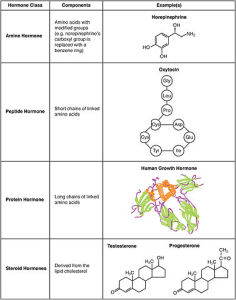[retweet][facebook]
New research finds acupuncture benefits the ovaries by regulating sex hormones. Investigators conducted a laboratory experiment and documented important medical benefits induced by the application of acupuncture. According to the research, acupuncture facilitated “the normal transformation of ovarian androgen to estrogen” and restored normal endocrine system functions.
 Acupuncture demonstrated several remarkable effects on the PCOS (Polycystic Ovary Syndrome) rats in this laboratory experiment. The PCOS rats demonstrated pathological changes in ovarian tissue including abnormal thickening of the coating, thinning of the granular cell layer, mitochondrion swelling, enlargement of the endoplasmic reticulum and oocyte disappearance. After acupuncture, a significant and dramatic improvement of the ovarian physical structure was evident. Acupuncture effectively improved both morphology and ultrastructure of the ovaries.
Acupuncture demonstrated several remarkable effects on the PCOS (Polycystic Ovary Syndrome) rats in this laboratory experiment. The PCOS rats demonstrated pathological changes in ovarian tissue including abnormal thickening of the coating, thinning of the granular cell layer, mitochondrion swelling, enlargement of the endoplasmic reticulum and oocyte disappearance. After acupuncture, a significant and dramatic improvement of the ovarian physical structure was evident. Acupuncture effectively improved both morphology and ultrastructure of the ovaries.
The researchers discovered important biological mechanisms responsible for the improvements. Acupuncture effectively regulated hormones and restored normal levels of many endocrine secretions. Excess androgens are responsible for acne, excess hair growth and the cessation of ovulation. Acupuncture successfully restored conversion of these excess androgens to estrogens. Acupuncture also regulated cytochrome P450 (CYP), an oxidative enzyme. In abnormal concentrations, CYP causes dysfunction relating to oxidation and metabolism. In this study, acupuncture successfully and significantly regulated CYP expression.
The acupuncture points needled in the study were CV4 (Guanyuan) and CV3 (Zhongji) for 20 minutes per day for 14 consecutive days. Electroacupuncture was applied at 2mA, 2Hz. An electron microscope measured improvements in ovarian tissue and structure as a result of acupuncture treatment. Blood tests tracked CYP, estradiol, estrone, androstenedione, testosterone, follicle-stimulating hormone (FSH), luteinizing hormone (LH) and other related substances. Electroacupuncture significantly regulated blood substance levels to improved medical states. The researchers note that acupuncture’s ability to regulate biochemicals within the blood directly caused the improvements to the ovarian tissue.
Related research published in the American Journal of Physiology – Endocrinology and Metabolismconcludes that electroacupuncture improves menstrual frequency and balanced sex steroid levels in women with PCOS. Hyperandrogenism is a primary symptom of PCOS and is characterized by excess hair growth on the face, balding, deepening of the voice, increased muscle mass, acne and menstrual irregularities. The sex steroid levels in the electroacupuncture group improved significantly and acne markedly decreased. The study measured improvements in a wide range of endocrine variables. The researchers concluded that electroacupuncture may help induce ovulation in women attempting to conceive since participants showed significant improvement in monthly menstrual frequency. Infertility is a major side-effect of PCOS and acupuncture demonstrates the ability to medically address this dysfunction.
Acupuncture was applied to CV3, CV6, ST29, SP6, SP9, LI4 and PC6. Thirty minutes of 2Hz electroacupuncture was applied to acupoints CV6, CV6, ST29, SP6 and SP9 at each acupuncture session. Intensity was adjusted to induce local muscle contractions at a comfortable level. Acupoints LI4 and PC6 were manually stimulated every 10 minutes to evoke deqi. Acupuncture was administered twice per week for two weeks, one time per week for six weeks and once every other week for eight weeks for a total of 14 acupuncture treatments over a 16 week period.
Another study concludes that both electrical and manual acupuncture “improve menstrual frequency and decrease circulating androgens in women with polycystic ovary syndrome (PCOS).” Manual and electroacupuncture groups showed normalization of estrogen activity and a decrease in androgens. In addition, the electroacupuncture group showed changes in the central opioid receptors of the hypothalamus suggesting that electroacupuncture may be “mediated by central opioid receptors….” The manual acupuncture group showed changes in the steroid receptors of the hypothalamus suggesting that manual acupuncture “may involve regulation of steroid hormone/peptide receptors.”
Excerpt from:
